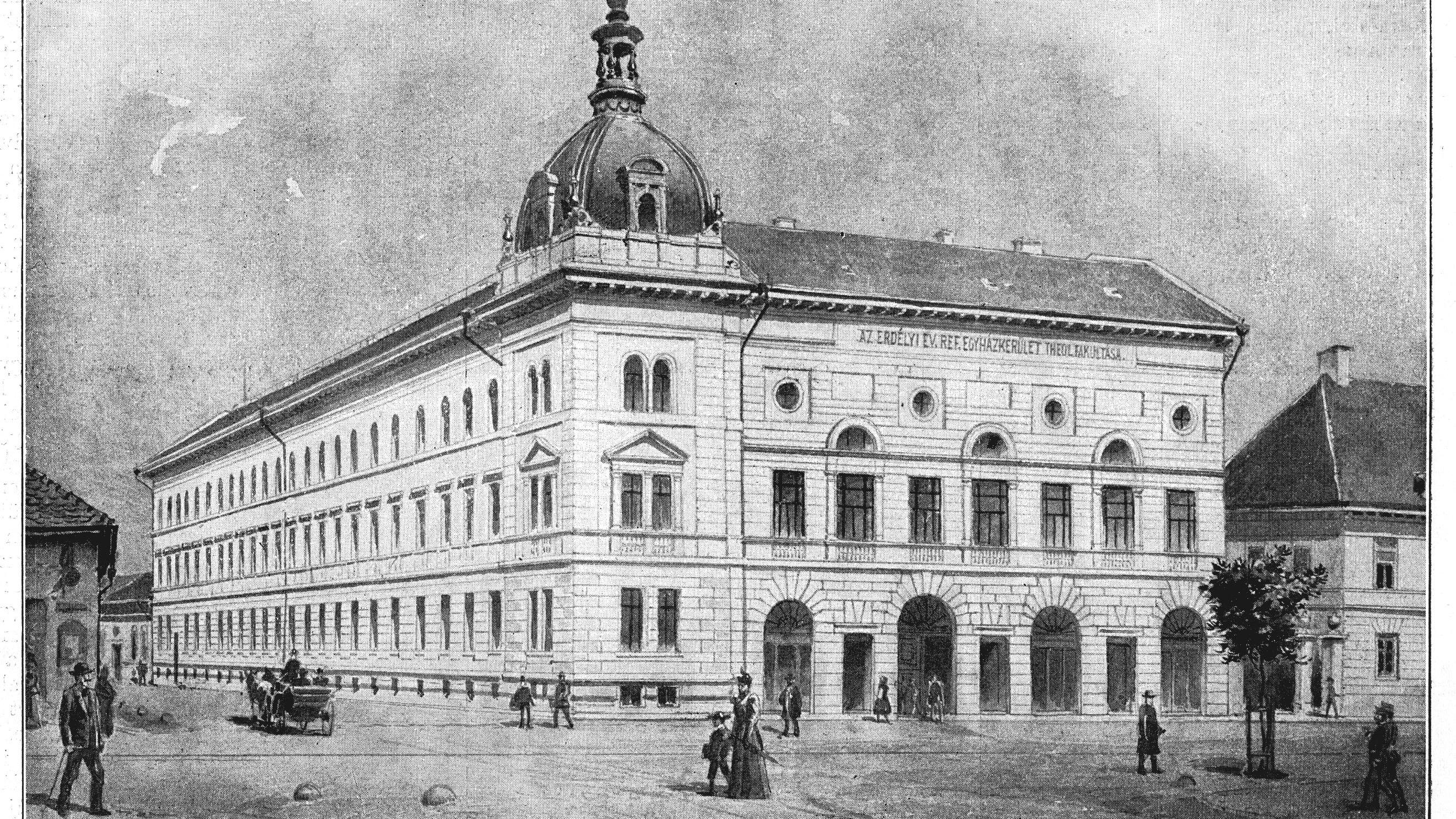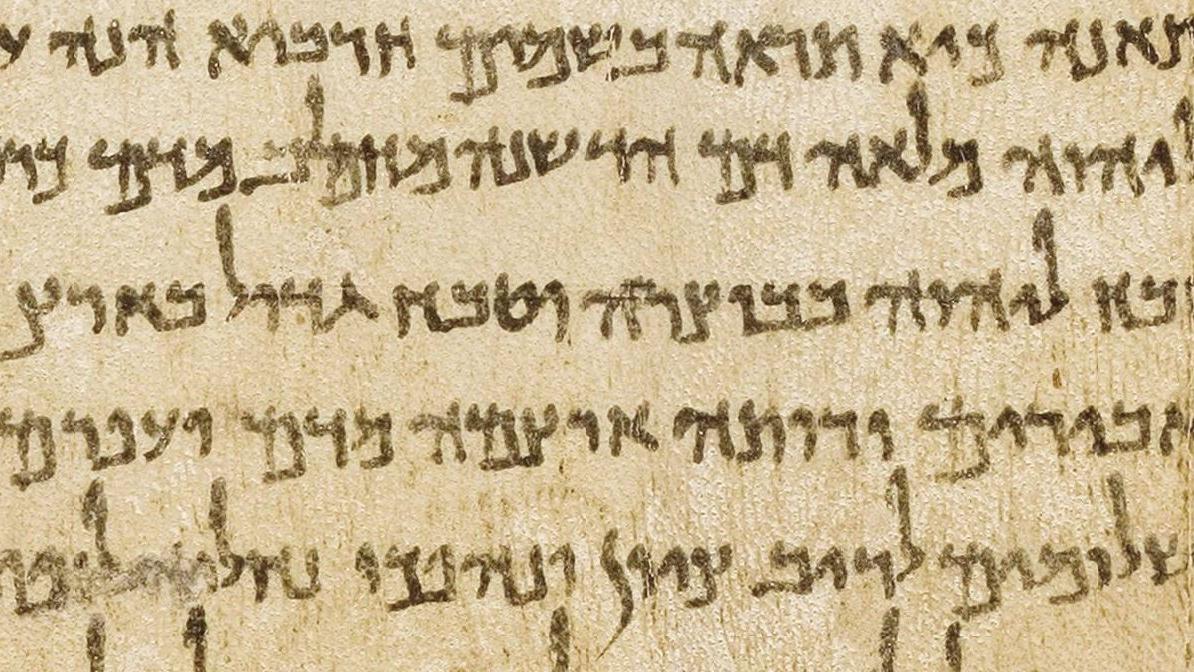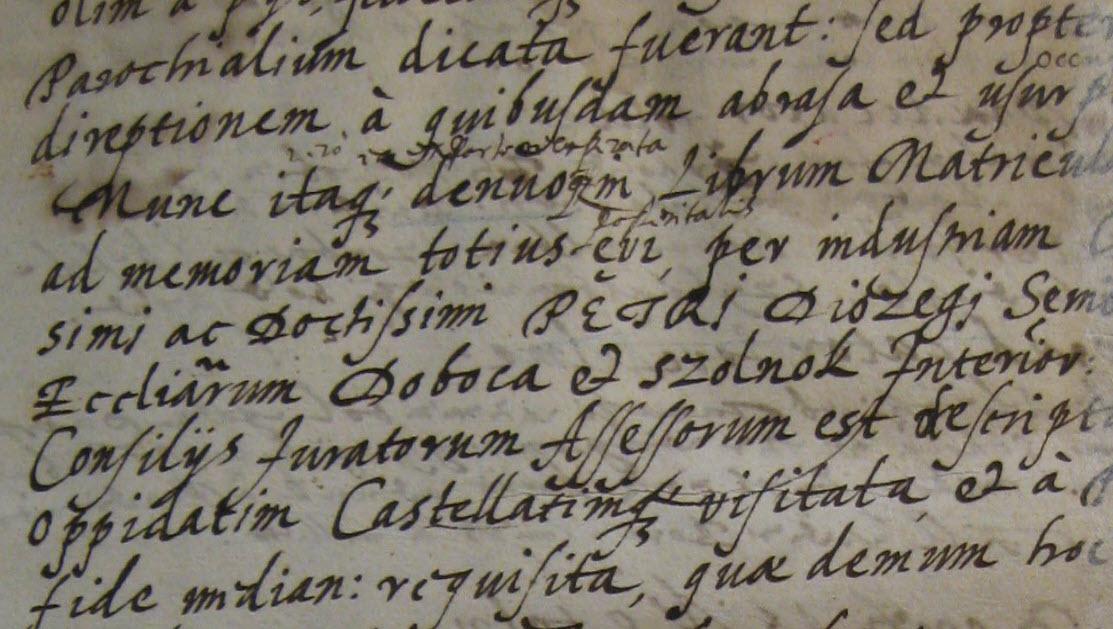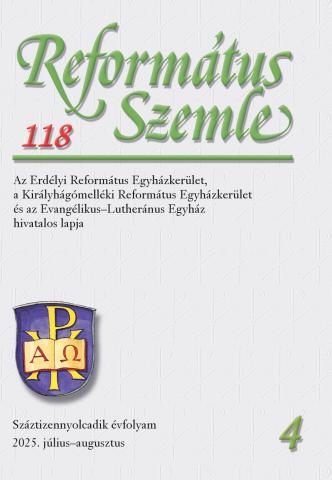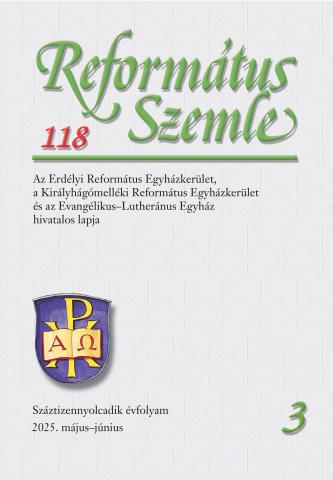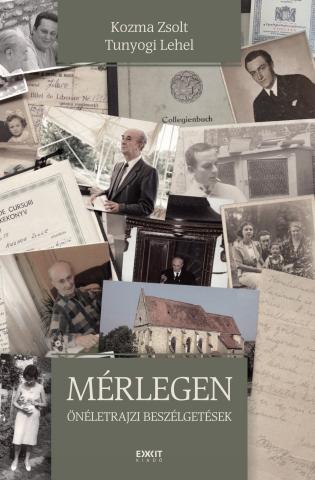Repository of the Protestant Theological Institute
Recently added to the repository
Reformátusok Romániában a népszámlálási adatokban. A református népesség főbb jellemzőinek változása a népszámlálási adatok alapján 1992–2021 között
Publication › Kiss Dénes › 2025Jelen tanulmány célja a romániai református népesség jellemzőinek elemzése a 2021-es népszámlálás adatai alapján, valamint az 1992 óta eltelt három évtized változásainak bemutatása. Vizsgálatom négy fő területre összpontosít: a lélekszám alakulására, a területi megoszlásra, az etnikai összetételre és az iskolai végzettségre. Eredményeim szerint a reformátusok száma jelentősen csökkent, miközben arányuk a magyar népességen belül stabil maradt. A területi koncentráció növekedett, a vidékiesedés erősödött, és a nem magyar reformátusok aránya folyamatosan nőtt.
Publication type: Szaktanulmány › Subject area: Egyéb, Szociológia › Keywords: Romániai Magyar Református Egyház, laikus egyháztagság, egyház és társadalom, népszámlálásAz iszlámról más megközelítésben. A Korán világa, imádságok, könyörgések, szertartások és a szentkultusz kérdése az iszlámban
Publication › Barta Zoltán › 2025Hálás, ám egyben nehéz kutatói munka terhét veszi magára az, aki az iszlám vallás kevésbé ismert részleteivel, ellentmondásaival, valamit a muszlim szentkultusz témakörével foglalkozik. E tanulmányban feladatomnak tartottam a Koránban található ellentmondásokra felhívni a figyelmet, emellett részletesen ismertetni a muszlim imatípusokat, illetve – ismerve a tanulmányok terjedelmének korlátait – kutatási területem eddig feltárt részleteit is be kívánom mutatni az iszlám, mint a 2. legnagyobb világvallás iránt érdeklődőknek.
Publication type: Szaktanulmány › Subject area: Egyéb, Teológia (általános), Spiritualitás › Keywords: iszlám, iszlám és keresztyénség, Korán, szentkultuszPublication › Kállai Benedek › 2025Ha összegezni kívánjuk Vásárhelyi János besztercei, dési majd kolozsvári szolgálatát, elmondhatjuk, hogy korának sokoldalú és legkiválóbb gyülekezeti lelkipásztorai közé tartozott.
Publication type: Szaktanulmány › Subject area: Egyháztörténet › Keywords: Vásárhelyi János, lelkipásztori szolgálat, Alsóvárosi Református Egyházközség › People: Vásárhelyi JánosPublication › Kustár György › 2025A hamis bíró példázatát a kitartó imádság meghallgatásának üzenete felől szoktuk érteni. Ez Lukács teológiai ívébe szépen illeszkedik. De mindez nem jelenti, hogy a példázat ezt is akarta üzenni. A bíró alakjának allegorikus értelmezése, botrányossága ellenére, ugyanis egy negatív alakot hasonlítana Istenhez, kisimítja az ellentmondásokat, és nagyvonalúan eltekint a belső feszültségektől, amelyek nem engedik meg az egyszerű értelmezést.
Publication type: Szaktanulmány › Subject area: Újszövetség › Keywords: Isten országa, példázat, Jézus példázataiPublication › Imreh Jenő László › 2025Basa Mihály levelezésének fennmaradt darabjai inkább csak adminisztratív jellegűek. Ezek a gyülekezeti szolgálatok megszervezésére, valamint a szolgálatot végző személyek kijelölésére és tevékenységére vonatkoznak. E kevés számú le-vél sorából – mondhatni – „kilóg” az Alexander von Bach császári belügyminiszternek címzett üdvözlet. Tematikáját tekintve e személyesebb hangvételű levél is a szolgálat kérdésköréhez kapcsolódik.
Publication type: Szaktanulmány › Subject area: Egyháztörténet › Keywords: 19. századi egyháztörténet, Basa Mihály, lelkipásztori szolgálat › People: Basa MihályPublication › Kállai Benedek › 2025Tanulmányomban Vásárhelyi János püspök dési szolgálatát mutatom be, ahol a belmissziói és iskolafelügyelői lelkészi állást töltötte be. A Désen töltött évek Vásárhelyi János számára a belső erőgyűjtés időszaka volt, ugyanakkor megszervezte a gyülekezet szeretetszolgálatát, beindította az ifjúsági munkát, újjászervezte a Konfirmáltak Egyesületét és a déscichegyi gyülekezeti életet is felvirágoztatta. Az impériumváltást követően református középiskolát alapított, amely Szolnok-Doboka és Beszterce-Naszód vármagyék egyetlen magyar középfokú tanintézménye volt abban az időben.
Publication type: Szaktanulmány › Subject area: Egyháztörténet › Keywords: Vásárhelyi János, lelkipásztori szolgálat, Dés, belmisszió, igehirdetés (prédikáció), egyházi oktatás, Vécsi SzövetségPublication › Imreh Jenő László › 2025Az 1848-as forradalom és szabadságharc leverését követően Basa Mihály új szolgálati helyén, Harasztoson folytatta lelkipásztori szolgálatát. Munkássága gyümölcsöző volt. A közösség életé-ben fejlődés és változás mutatkozott, és esperesi tisztségé együtt járó fealadatait is hűséggel, odaadással látta el. Lelki, közösségi, személyi és adminisztrációs vonatkozású ügyeket kellett megoldania. Döntéseit mindig úgy igyekezett meghozni, hogy azokkal anyaszentegyházának ügyét és védelmezését szolgálja. Szolgálatát kortársai is értékelték és elismerték. Személyes életútja a 19.
Publication type: Szaktanulmány › Subject area: Egyháztörténet › Keywords: Basa Mihály, 19. századi egyháztörténet, lelkipásztori szolgálat, Nagyenyed, Harasztos (Călărași), 1848-as forradalomA feltétlen és a feltételes fogalma Paul Tillich teológiájában. Összevetés a református hagyománnyal
Publication › Jónás Norbert-Ferenc › 2025Ebben dolgozatban Paul Johannes Tillich egzitencialista meghatározottságú teológiáját hasonlítom össze a hagyományos, tradicionalista protestáns teológia álláspontjával. Az összehasonlítás Tillich Isten- és létértelmezésből indul ki, amelyet a Második Helvét Hitvallás megfelelő pontjaival vetettem össze. A dolgozat fő célja Paul Tillich teológiájának megismertetése, értelmezése. Elsősorban Paul Tillich alapműveire, illetve az azokról született tanulmányokra támaszkodtam. A hagyományos protestáns szemszöget a Második Helvét Hitvallás és kommentárjai alapján mutatom be.
Publication type: Szaktanulmány › Subject area: Rendszeres teológia › Keywords: Paul Tillich, istenkép, komparatív teológiaPublication › Simon János › 2025A 2019-es évben kiemelkedően gazdag bibliai archeológiai leletanyag került felszínre. Hérodotosz tengerjáró hajójának (Barisz) előkerülése igazolta az ókori történetíró hitelességét. Jeruzsálemben a Kr. e. 586-os babiloni ostrom tárgyi bizonyítékai kerültek elő, köztük pecsétnyomatos edények és egzotikus vanília nyomai. Lákis városkapujában Ezékiás király vallási reformjainak kézzelfogható nyomaira bukkantak. A jeruzsálemi zarándokút (Siloám–Templom-hegy) feltárása Josephus Flavius leírását erősítette meg.
Publication type: Szaktanulmány › Subject area: Ószövetség, Újszövetség, Egyéb, Régészet › Keywords: régészet, régészeti felfedezésPublication › Kozma Zsolt, Tunyogi Lehel › 2017Az egész életutam nem a környezetem, barátaim, családom és nem is a lelkiismeretem mérlegén van, hanem azén, Aki „hiteles mérleggel” mér engem (Jób 31,6). Csak bízhatom abban, hogy ha az egyik serpenyőben az eddigi 82 évem van, a másikban Isten kegyelme. (...) A nyugdíjkor kezdete kiszámítható, a vége nem. Csak Isten tudja az ember „hónapjainak számát” (Jób 14,5), s ahogyan tudatosan készültem a nyugdíjasom napjára, próbálok ugyanúgy tudatosan készülni annak utolsó napjára.
Publication type: Monográfia › Subject area: Egyéb, Teológia (általános) › Keywords: életrajz, önéletrajz, szakmai életút, interjú, szakmai identitás › People: Kozma Zsolt


